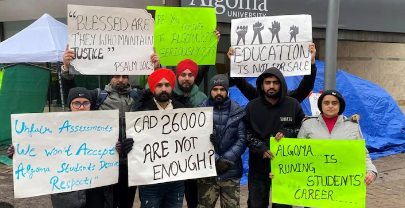Assignment
Achievement
Hire Experts
Reviews
Free Services
Grades
Offers
Order Now
50,000+
Orders Delivered
4.9/5.0
Star Rating
100%
on-time delivery
24 x 7
Query Resolution
100 +
Subjects Catered
Our Experts
Reviews
Free Assignment Services
☞Title Pages - 100 Words
$05.00 free
☞Downloading Free Guide
$20.00 free
☞Upload Completed Tasks
$20.00 free
☞Genuine Content Report
$20.00 free
☞Consultation By Experts
$06.00 free
☞Unrestricted Revisions
$10.00 free
☞Grammar Check for Task
$25.00 free
☞Plagiarism Inspections
$25.00 free
Book Now and get Free Services Upto $0.00
Grades
Offers

1. PLACE YOUR ORDER
Whenever you fill out their order form, please read it carefully and then fill it out.

2. MAKE PAYMENT
Choose our secure payment method to pay for your order and collect your order from us with security.

3. GET YOUR DOCUMENT
Our writers write you plagiarism-free assignments and provide them to you before the deadline.
Our Experts

Search Assignments

Customers Reviews
The economic recession in the west is dictating stricter visa regulations for international students.
United States, Canada, UK, and Poland, leading destinations for higher education, have tightened their visa requirements and capped the maximum number of international students which can be admitted each year.
Apart from economic recession, these changes are also driven by rising number of fraud cases, competition in the job market, misuse of study visa systems, and the impact of international students on housing markets and public services.
This has caused significant uncertainty among international students. To oppose these changes, students in Canada are protesting for the past three months, while students have stopped admitting to UK universities altogether. The admission rate of international students has fell by 23% recently.
In this article, we will delve at the intricate details of current outlook of international students in the United States, Canada, Australia and the UK.

In the late 90’s and early 2000’s, Canada was the most popular destination for international study, especially for Asian students. Thanks to its affordable education and straight forward application process, more than 1.8 million Indians have settled in Canada, which makes 3% of the total population.
However, in the recent years, the fraud against international students has risen significantly. The recent case of 700 Indian students admitting with fake admission documents caused disruptions in the industry.
Not only this, the rising number of students has also led to crises in the country. As per the official statement of Canadian Government, rising houses prices and increased job competition is due to rise in international students.
Trudeau government, in the light of same, has also implemented measures to limit the number of international students. The Canadian government has introduced caps on the number of study permits issued and has tightened eligibility requirements for post-graduation work permits.
As a result, nationwide protests have swept across the nation. More than 70,000 international students face risk of deportation due to new policy change. Since the policy change in June this year, students have been protesting at different locations throughout the nation.
The new policy change has curtailed the post-graduation work permit (PGWP) for international students. Changes have curtailed the post-graduation work permit (PGWP) eligibility for international students. This has left many graduates, who have invested significant time and resources in their education, in a precarious situation.
International students in Australia are also facing similar crises. Australia has also taken steps to reduce the number of international students amid recession and increasing competition in housing market and job opportunities. The government has recently announced a cap on international students’ enrollment for 2025, reducing the number to just 270,000. The student visa fees have also doubled to $1600 per application.
 .
.
The stringent rules come amid growing concerns about the impact of international students on housing market; Critics argue that the demand of rental properties has risen due to high influx of foreign students. This has also become a major political debacle ahead of upcoming elections, with both ruling and opposition party vying for a solution of housing crises in the nation.
While the government has projected the decision as a means to reduce strain on resources; the decision will harm Australia’s reputation as a welcoming destination for international students. even the universities and education providers have expressed concerns about the potential impact of cap on their revenue generation and student diversity.
Over the years, Poland has built a strong reputation as a desirable destination for international education. However, it has also tightened its study visa regulations over claims of abuse by foreign students. Poland has announced that it will no longer issue student visa to any international student who fails to verify their high school diploma. Foreign minister, Rodoslaw Sikorski, made this announcement in an event interview with TVN 24.
The decision comes in response to reports which show multiple polish universities enrolling students without conducting formal background checks and document verifications. According to Sikorski, students are using study visa as a means to work in Poland, rather than studying.
The research data support these claims. According to Polish daily Rzeczpospolita, in the last decade, 321,000 international students came to the country from nearly 200 countries, yet only 118,371 graduated. This suggests that a large number of international students are not completing their studies and are instead seeking employment opportunities in the Schengen Area.
As a result, the government has tightened the regulations for student visa.
UK is facing looming threats of economic recession and high cost-of-living crises. Amid this, the decline in the Indian students coming to UK for higher studies is a significant development, given the country’s long standing popularity among Indian students. The 23% drop in sponsored study visa grants to Indian nationals is a clear indication of the shift in preferences and priorities.
To sum up, the international ecosystem for international student in undergoing immense changes. These changes are driven by economic recession, tightening of study visa regulations and immigration policies. These countries have introduced stricter visa regulations which have in turn reduced the number of admissions and implemented measures to manage the impact of international students on housing market, job competition, and public services.
While these changes are seen as necessary by some governments to address national concerns, they have also sparked widespread debate, protests, and uncertainty among students who have invested heavily in their education.
Disclaimer: all content and intellectual property remain the exclusive property of value Assignment Help




No Comments